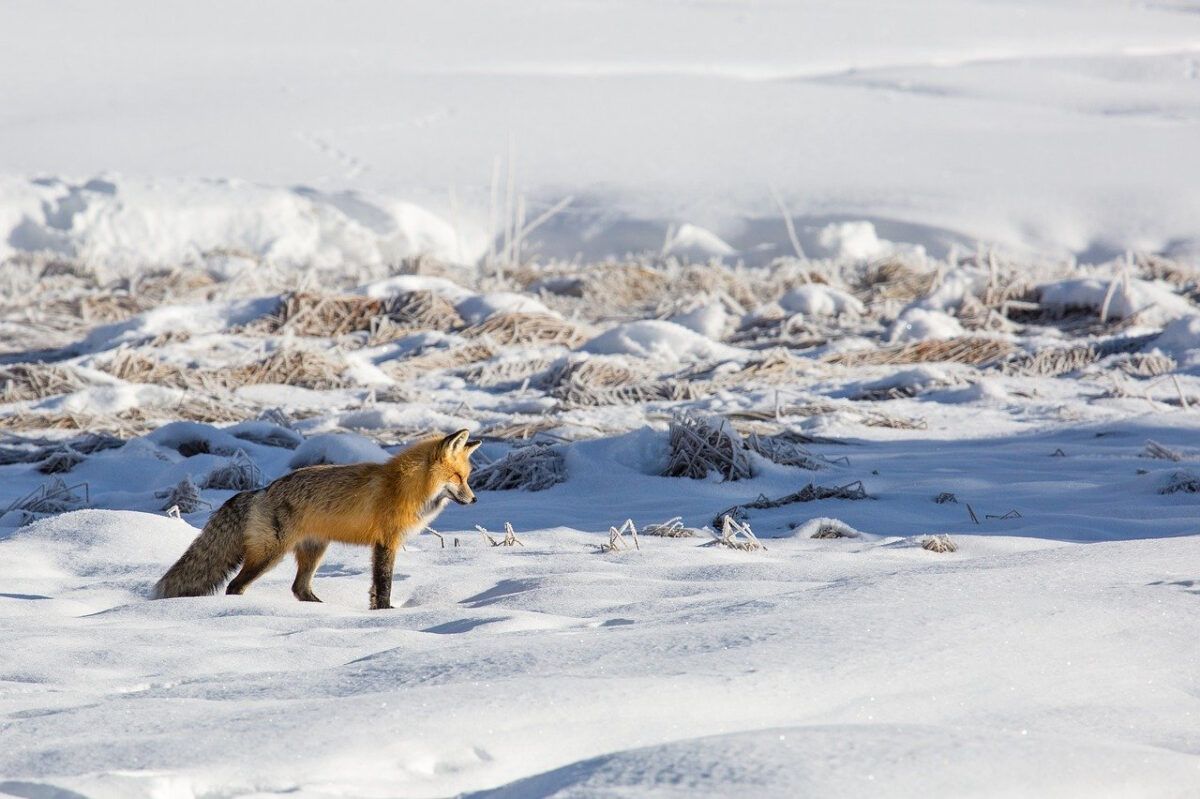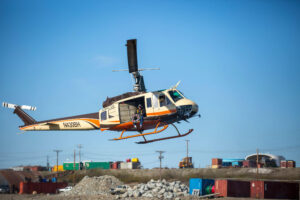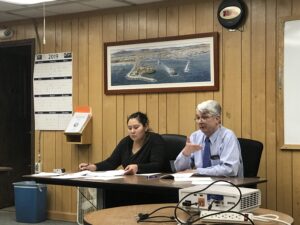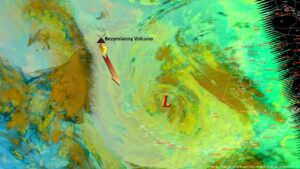From January through this April, more than a dozen red foxes in the Nome area have shown signs of rabies and tested positive for the virus.
According to Alaska Department of Fish and Game Wildlife Veterinarian Dr. Kimberlee Beckmen, during a typical winter there are usually only two or three positive rabies cases from the Nome area.
“There’s been 16 total red foxes if you count Nome and the surrounding area, plus there was one each in Unalakleet, Shishmaref and we diagnosed one and Brevig Mission,” Beckmen said.
The case in Brevig Mission was diagnosed on Wednesday, April 26.
Preliminary 2023 results already show differences from samples taken two years ago. Of 11 foxes this year that were found dead or killed in Nome by dogs or because they appeared rabid, all were positive for the virus.
Of the 61 red foxes counted in and around Nome between February and March 2023, nearly one quarter were positive. This is an increase over the 17% of positive foxes during a similar period in 2021.
Norton Sound Health Corporation, the City of Nome, the Office of the State Veterinarian, and the National Park Service assisted in the research.
This year, the Centers for Disease Control donated Bionote rabies test kits to the state. Beckmen said that with those kits, officials can confirm in minutes if rabies is present in fox brain tissue, rather than the hours previously required.
“Even if the fox was shot in the head and there’s no recognizable brain left, if it’s positive we can get that positive result right away and make sure that the dog or person that was exposed is notified right away,” Beckmen said. “They get the appropriate treatment and boosters.”
If someone believes they have been exposed to rabies, they are advised to immediately seek medical attention.
Beckmen said dog-to-human infection by the rabies virus – after a dog has encountered a rabid fox – is of concern.
“We have had cases even this winter where a red fox attacked a person,” Beckmen said. “Most of the time, people recognize that this is not a good thing and they seek medical care. (But) if a dog gets attacked by a fox or tangles with a fox, and people don’t know about it, and then the dog becomes rabid and then bites a person, that’s an unknown exposure, so the person doesn’t get treated.”
According to NSHC, no cases of rabies in humans has been detected since January.
Beckmen said if Western Alaskans see a fox acting aggressively or afraid, or trembling or having what looks to be seizures and aggressively biting at an inanimate object, the best advice is to put it down.
“If they see a fox like that then they should shoot it and submit it to Fish & Game,” Beckmen said.
Norton Sound Health Corporation provides a regional vaccination program.
Alicia Reitz is am Environmental Health Specialist for NSHC, which trains vaccinators to work with dogs and cats in villages. She said dogs and cats in the region can get vaccinated at no cost.
“We have one in almost every village who can vaccinate for rabies, and it’s free,” Reitz said. “We have vaccinators in Nome that we have trained through Norton Sound Environmental Health.”
Reitz added that keeping dog food and garbage away from foxes helps to limit their presence in towns and villages. Making sure pets are always supervised or tied up and unable to interact with potentially rabid foxes is another important factor.
Rabies vaccines for pets are free. In Nome, contact the Nome Animal House at (907) 443-2490 or Rural Alaska Animal Resources (907-443-5697) to vaccinate your pet. Outside of Nome, contact NSHC’s Office of Environmental Health at (907) 443-9767 for when vaccinations will be available in your community.
Image at top: Vulpes vulpes, the red fox, hunting in the sub-Arctic snow. Photo in the public domain, via Pixabay.





